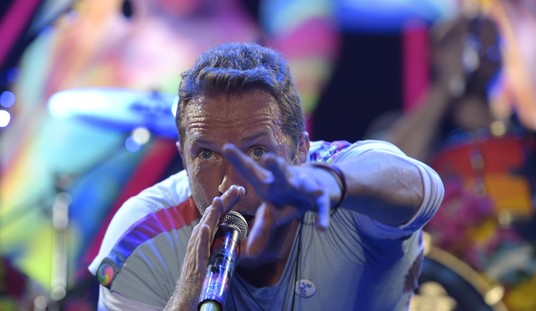There’s an interesting story at Quillette titled “The Bolivarian God That Failed.” Author Clifton Ross describes himself as a former Sandinista supporter who, naturally, also supported Venezuela’s shift toward socialism under Hugo Chavez. But Ross gradually came face-to-face with the reality of what socialism was doing to the country. When he did and decided to tell the truth about what he had seen, his comrades turned on him:
An early supporter of the Revolution, I had traveled to Venezuela in 2013 to cover the April presidential elections. By the time I returned to the US, I was disillusioned and depressed. I decided I needed to start writing and speaking about what I had seen there. In an article I wrote for the radical magazine Counterpunch around that time, I argued that “the so-called ‘Bolivarian Revolution’ is bankrupt: morally, ideologically, and economically,” and I asked what we, as leftist solidarity activists, should do in response. “Should we continue to make excuses for incompetence, corruption, and irresponsibility and thereby make ourselves accomplices?” I asked. “Or should we tell the truth?”
I had resolved to tell the truth. Having been so wrong about something so consequential, I felt it was the least I could do. By then, Venezuela was already in a terrible mess. Many of those I had helped to convince of the possibilities offered by Bolivarian socialism were deeply suspicious of the mainstream media and deserved to hear what was going on from a writer they trusted. But, as it turned out, the people I wanted to reach didn’t want to hear such things. And the people I asked to publish my articles didn’t much want me to write about them either. As a result of my voltafaccia, former comrades and friends contacted my editors and publishers in (occasionally successful) attempts to have my articles spiked. I was denounced and slandered online and in print. Phone calls and emails to people I had thought of as friends now went unanswered. On those occasions when I encountered one of them in public, they looked the other way. Abruptly, I found myself excommunicated, and people I’d known for 30 or 40 years made it clear that they no longer wanted to be part of my life.
Going back to before his decision to take issue with socialism, Ross writes that he was well aware of what socialism had been in the 20th century, but Hugo Chavez seemed to be promising something new. Someone was finally going to offer the real socialism that had never quite happened before.
By 2004, I was already well aware of what Marxist-Leninist socialism had done to the twentieth century. So why did I fall for the socialism that Hugo Chávez proposed in Venezuela? The reasons were part push, part pull. The push came from the American invasion of Iraq less than two years earlier. After a rapid battlefield victory, the news from the Middle East seemed to be growing more dire by the day. A little over a month before I left for Venezuela, allegations began to emerge that the US military were committing war crimes in Fallujah. Surely a better way than this remained possible? As I wandered around Venezuela that December I was desperate for an alternative I could believe in, no matter how fragile.
The pull was what Hugo Chávez was proposing. He acknowledged the problems of twentieth century socialism, and claimed to be offering something different—the Bolivarian version of “twenty-first century socialism.” This would be the “socialism with a human face” and quite unlike the repressive, totalitarian bureaucratic behemoth of Marxist-Leninism. As Chavista Gregory Wilpert insisted in his 2007 book Changing Venezuela by Taking Power, under Bolivarian socialism “ownership and control of the means of production must be collective and democratic.” Cooperatives were to play a large part in this and, after 2006, so would the local communal councils.
And at first, it all seemed to be working. Using money from the high price of oil on the global market, Chavez spent a lot of money and reduced poverty in the country. But by the time Chavez died and was replaced by his hand-picked successor Nicolas Maduro, Ross was drifting away from his socialist foundation. Ultimately, he came to believe his eyes rather than his ideology:
I’d visited Cuba twice—in 1994 and again in 2010—and now, with my experience of Venezuela, I felt I’d seen the best socialism could offer. Not only was that offering pathetically meagre, but it had been disastrously destructive. It became increasingly clear to me that nothing that went under that rubric functioned nearly as well on any level as the system under which I had been fortunate enough to live in the US. Why then, did so many decent people, whose ethics and intelligence and good intentions I greatly respected, continue to insist that the capitalist system needed to be eliminated and replaced with what had historically proven to be the inferior system of socialism?
Ross argues that the “synoptic delusion” is responsible. It’s the idea that a small group of central planners can be more efficient than allowing the market to work based on the voluntary decisions of millions of individuals. And he writes that this delusion is still a powerful and dangerous one for people who still think socialism is the path to a better world:
The synoptic delusion—compounded by immense waste, runaway corruption, and populist authoritarianism—is what led to the mayhem engulfing Venezuela today, just as it explains why socialism is no longer a viable ideology to anyone but the kind of true believer I used to be. For such people, utopian ideologies might bring happiness into their own lives, and even into the lives of those around them who also delight in their dreams and fantasies. But when they gain control over nations and peoples, their harmless dreams become the nightmares of multitudes.
I wonder if AOC has read this piece? Just a stray thought. In any case, Ross writes that he now believes capitalism, while not a perfect system, has done more for more people than socialism ever will because “markets do work for the majority.” It’s good to hear that some people, even former hardcore socialists, are capable of changing their minds after seeing what is happening in Venezuela.
Finally, I also came across the video today. It’s from a comedian I’ve never heard of but the clip itself is a pretty straight presentation of the situation in Venezuela today. My only problem with this is that, like a lot of people on the left, she sort of sounds like she wants to say what is happening there isn’t about left-right politics. That’s not at all true. What’s happening in Venezuela has everything to do with left-right politics. Nevertheless, her description of the outcome of socialism is accurate and disturbing. Hopefully, this message gets to a few people who otherwise wouldn’t hear it.








Join the conversation as a VIP Member